French philosopher Jacques Derrida was born on July 15, 1930 in El Biar, Algeria, the third child of a French Jewish family. Derrida’s ancestors were Sephardic Jews who fled from Spain to Algeria during the Inquisition. Born three months after the death of his brother Paul, he would later say that he felt like “a precious but very vulnerable intruder”. When she was born, her parents named her Jackie, after the famous child character in Hollywood movies. Shortly before his first book was published, he changed his name to Jacques in French. His childhood was spent in El Biar, Algeria, where he was born. It was here that he was exposed to the Second World War and the effects of Hitler’s anti-Semitism, which led to the war, and he was expelled from his school and had to go to another school. During his education here, he was introduced to the works of important French writers and philosophers such as Camus, Gide and Sartre. This period of Derrida’s life is spent both as a passionate reader and amateur writer and as a vagabond in a “friendship gang”.
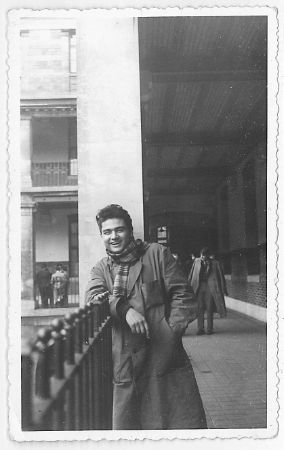
His departure from Algeria was marked by his enrollment at the Ecole Normal Superieure, one of France’s leading schools. This school was the first place where some of the most influential philosophers of the new era in France after the Second World War were trained. It was at this school that Derrida met and was taught by important thinkers such as Louis Althusser, Michel Foucault and Jacques Lacan. Although his teachers often complained that they could not understand his essays. Here, he met Louis Althusser, who would become his close friend for the rest of his life. He was able to assimilate structuralist thought thanks to Althusser, who had done important work on the Marxist side of structuralism, which is “the way of analyzing values in a system by understanding that they are established in the context of their oppositions”. Thanks to this assimilation, “deconstruction” would later become a consistent methodology of incoherence, and Derrida would be known as the founder of the philosophy of deconstruction.
During these years, he took part in extreme left-wing non-communist organizations. He follows Michel Foucault’s lectures and establishes a close friendship with the philosopher. In the philosophical milieu he entered in Paris as a student of Foucault and Althusser, he often suffered from bouts of anxiety and depression because he always felt a bit depressed and too other. He writes to a friend: “I am good for nothing except taking the world apart and putting it back together again (and the latter I manage less and less).”
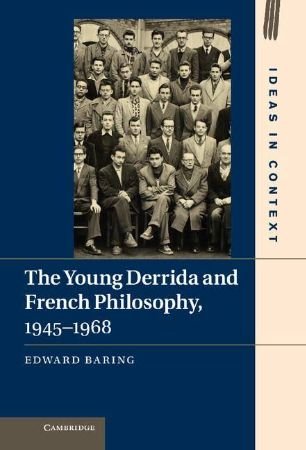
In 1957, Derrida won a scholarship and went to Harvard University. Here Derrida studied the unpublished works of Edmund Husserl. When he chose Edmund Husserl’s phenomenology as his field of study, even he was unaware that he would later become the founder of the philosophy of “deconstruction”. It is surprising that the idea of “deconstruction”, which opens the door to the ambiguity of meaning, comes from someone studying Husserl’s phenomenology. For Husserl is a philosopher who shaped his entire philosophy according to the principle of clarity and attached great importance to the clarity of meaning. Even though Derrida’s philosophy will contradict some of Husserl’s ideas in time, this journey, which carries the first glimpses of Derrida’s reputation in America, will be beneficial for him.
One of the important events that erupted in the years after his return from Harvard and constituted a turning point in Derrida’s life was the Franco-Algerian war. During this war, Derrida performed his military service by teaching in a civilian school in Algeria.
He was opposed to the colonialist policy that France practiced on Algeria. Derrida considered himself neither Algerian nor French, he defined himself as an exile and rejected a single identity (which he understood as not coinciding with himself). He has both identities at the same time. Her name is Jackie, but she is also Jacques. He speaks French, but Arabic, the language of his grandparents, is always in his memory. He served in the war as a civilian. He is a well-known French thinker in America. He was able to melt and accept all these opposing elements in a single pot, and he was able to make people accept him in this way.
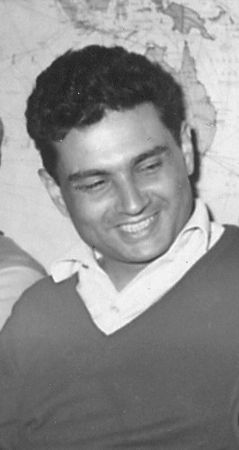
While Derrida expresses this in some of his texts, he introduces himself as follows: “I am not a single voice, sometimes another voice speaks through me… I let many voices speak in my texts. Sometimes I say, ‘I am not going to write a text that speaks with one voice,’ and so I write the text with many voices; I adopt different tones, different positions, different demands. So I can say: “Okay, I accept that the person who says, ‘I accept’ is one person in me, but there is another person, another person, another person in me, I am more than one.”
After teaching in various high schools and being an assistant at the Sorbonnne, Derrida was appointed associate professor at the School of Higher Education in 1964 at the initiative of Althusser. In 1966, at the invitation of René Girard, who was in the United States at the time, he participated in a major symposium at John Hopkins University. This symposium marks the beginning of Derrida’s close and fruitful relations with various universities in the USA. In 1967, he gives a lecture at the French Philosophical Association on the concept of “Différance”, which constitutes the basic concept of his thought.
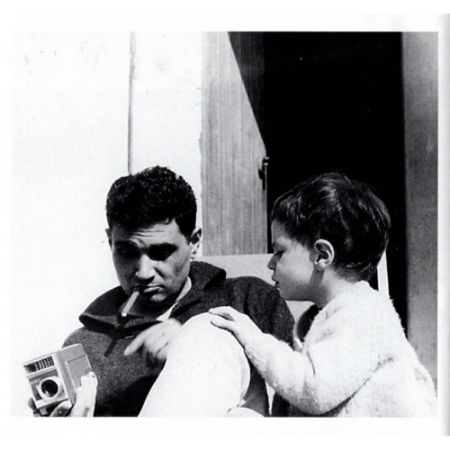
In the same year, he publishes three fundamental books that will introduce his philosophy to the whole world: L’Ecriture et la différence (Writing and Différence), La Voix et le phénomène (Sound and Phenomenon), De la grammatologie (On the Science of Trace). With the publication of these books, Derrida received increasing attention from both European and non-European universities. He was invited to hundreds of conferences, countless symposia were organized around his philosophy, and he began to lecture regularly every year at some American universities. From Japan to Brazil, he becomes more and more on the agenda of the world of thought.
“A book is a labyrinth. When you think you are out, you dive deeper. There is no way out. I see how your fear grows. Another wall, another wall. Who is waiting for you at the end? – No one… Your name is closed on itself, like a hand closed on a knife.”
Although Derrida took part in many activities during the events of ’68, he preferred to remain at a distance. Since philosophical activities in France have been closed to the outside world and dominated by nationalist and conservative forces since the revolution of 1789, these forces, which control the mechanisms of tenure distribution in universities, insisted on giving professorships to Althusser and Derrida, two of the most well-known thinkers outside France, for many years.
Derrida owes his recognition in France largely to symposia. In 1974, with Sarah Kofman, Philippe Lacoue Labarthe and Jean-Luc Nancy, he founded the series “La philosophie en effet” (Philosophy in action). In 1981, with Jean Pierre Vernant, he founded the Jean Hus Association to support Czechoslovakian intellectuals. He was arrested in Prague, where he had gone to attend a secret meeting organized by Czech intellectuals; he was arrested for drug trafficking. He was released thanks to the energetic intervention of the French government, especially President François Mitterrand.
Jacques Derrida made his name with his philosophy of “deconstruction”, a critical reading method against Western metaphysics. With this method, Derrida disrupts the system of signification based on opposites and gives new meanings to concepts.
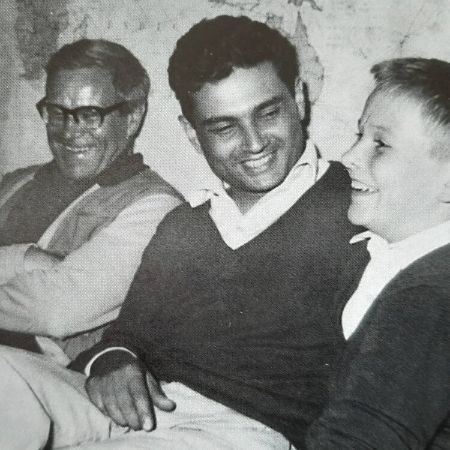
The term “deconstruction”, which first appeared in Derrida’s Sound and Phenomenon published in 1967, reveals a text-reading strategy that focuses on showing the arbitrariness and groundlessness in the functioning of the dominant logic of thinking, which is inherent in the genetics of Western philosophy and has formed a tradition. In this context, it would not be wrong to consider deconstruction as a radical counter-reading. However, this strategy of counter-reading is a strategy that does not address a certain intellectual orientation or a specific discipline within the history of philosophy, or even a logic of thinking that is only related to the history of philosophy, but a logic of thinking that encompasses the entire Western civilization, from its culture to its politics to its codes of everyday life. This is the main reason why it has become one of the fashionable concepts with a global impact, especially after the second half of the 20th century.
Derrida’s method, which is considered within the philosophy of language, has been accused of emphasizing literary texts and ignoring ethical-political issues. The criticism is that he has put these issues on his agenda after the 1990s. The most important criticism of the concept of deconstruction is that it fails to provide a fixed conceptual framework and therefore does not actually say anything. According to this criticism, deconstruction’s determination that there is no fixed meaning or a presence that resists time involves the rejection of the search for meaning. The conclusion of this critique is that deconstruction will constantly reject any sentence that expresses meaning, and therefore can never establish a meaningful structure.
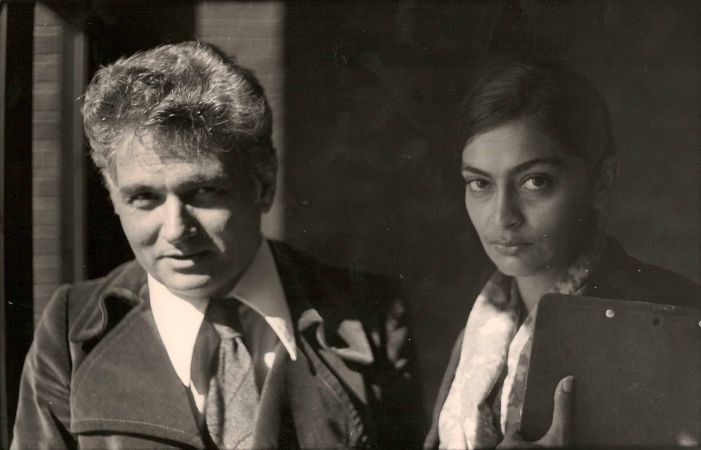
Instead of distinction or difference, Derrida proposes another term, derived from the same root but of his own invention, to express this play of linguistic signs: Differance. Differance is a concept that does not include phonocentrism or logocentrism and emphasizes the structure of language that postpones meaning. In this respect, it also has the character of revealing the violence that underlies Western metaphysics. Derrida states that he derives the term from the verb differer, which comes from the Latin differe and has two different meanings. The concept in question includes meanings such as distinction, non-identity, difference, and also means postponement, delay, reserve. While the first meaning is covered by the term difference, the second meaning is one that difference forgets or ignores. Therefore, Derrida prefers the term difference, which includes both meanings, instead of difference, which is based on violence, in order to show the linguistic system in question.
Difference is Derrida’s strategic move to subvert and invalidate Ferdinand de Saussure’s linguistic views and the intellectual patterns of Western metaphysics. Defined as a game of free interpretation in the sign system, differance is a concept based on the active and free interpretation of the subject. Differance, which represents a new way of understanding, can be considered as an attempt to get rid of the compulsory relations between language and thought and to eliminate the pressure of centralized reason on thought by this method. Differance has established important ties with postmodern art, which represents a new understanding of freedom, and has offered new perspectives to artists. This new perspective has largely determined the intellectual and aesthetic perspective of postmodern art and has been the source of the emergence of different forms of expression.
Derrida wanted to be a poet and write novels when he was young, but then he gave up; he chose to be an anti-philosopher who thinks through literature. Derrida’s texts are indeed unsettling and alarming. In the first step, they appear as texts that interpret, analyze and question the basic texts of Western philosophy with great skill, with logical coherence acquired in the “schools of phenomenology” and with reasoning techniques whose soundness has been tested for centuries. As a matter of fact, Derrida’s French is a language that can be called classical, highly respectful of the structure, syntactic and grammatical rules of the language, and careful not to irresponsibly abuse and destroy it.
“In the nature of poetry, there is no quotation, no title, no role, it goes beyond you, it happens when you don’t expect it, it happens when you don’t expect it and it doesn’t expect you, it takes your breath away, it interrupts your breathing, it interrupts poetry, which is discourse, especially literary poetry. Even in the ashes of this family tree. Not a phoenix, not an eagle, but a hedgehog, very low, very small and silent, close to the ground… Neither lofty nor disembodied, perhaps angelic for a while. ”
From this language, which is neat, beautiful, subtle, elegant in the classical sense, the reader may get the impression that Derrida is moving in a known world, in the familiar world of his own culture. However, as the text progresses, as the concepts are articulated, the familiar world, familiar faces, familiar thoughts, observations, propositions, theses, gradually (one of the basic rules of Derrida’s thought is this rule of gradual, cautious, careful rhythm) begin to shake, to distance themselves, to distance themselves (distance is one of Derrida’s most important concepts). Our familiar world gradually becomes alienated. This can be described as a strange sense of foreignness, as the familiar world taking on an eerie appearance: both familiar and foreign, neither familiar nor foreign.
“My profession is philosophy and I am someone who teaches philosophy. But I cannot say that I am a philosopher in the full sense.” This is how Derrida briefly introduced himself in one of his interviews. For a thinker who by the 1970s had achieved a well-deserved fame, whose popularity crossed continents, and who had defeated some of the metaphysical concepts of Western philosophy, these might be considered too modest words. But alongside these dazzling titles, Derrida has also been given negative titles by his opponents. According to Derrida’s biographer Simon Glendining, some of these criticisms are not entirely unjustified: “What made the claims of Derrida’s critics somewhat plausible was his attempt to obscure the conventional patterns of thinking, the intellectual programs that he saw as part of the nature of his philosophy, or at least that had hitherto been accepted as such. With this approach he seemed to deny what had hitherto been accepted as true.” Derrida leaves not only the traditional concepts of Western philosophy on an ambiguous ground, but also the concepts he developed himself. In a letter to the Japanese scholar Toshihiko Izutsu, he says that deconstruction is undefinable.
The fact that even a philosopher who is presented as the founder of deconstruction avoids defining it is undoubtedly a warning to be ready for the slippery ground of deconstruction. It is not possible to survive on this ground for those who accept without questioning the given concepts in the metaphysical system of thought, which goes back to Plato, that truth has a definite counterpart, a definition or an essence. The disruptive nature of deconstructive philosophy sometimes prevents it from being understood. At the point where the existing words are insufficient, the subjective language formed by reproducing its own concepts by playing with the words in the language increases this incomprehensibility.
Derrida also says that the main purpose of doing this kind of philosophy: To have some fun, to get rid of boredom, to take pleasure if there are people who can keep up with him, to teach pleasure, and to preserve the freedom to which he is prone. As mentioned above, Derrida’s philosophy dismantles concepts rather than constructing them. This process of dismantling goes to such an extent that “deconstruction” allows all concepts, lexical meanings, syntactic articulations that are deemed appropriate to define it to be dissolved or solvable. Derrida’s life story undoubtedly plays an important role in the thought that makes concepts deconstructible. In his biography, Simon Glendinning says that if the events that shaped Derrida’s life had unfolded differently, he would have nothing to say about Derrida.
“Forgiveness, if there is such a thing, must and can only forgive the unforgivable, the irredeemable – and therefore must and can do what is possible. To forgive the forgivable, the minor sins, the excusable, the always forgivable, is not forgiveness.”
One could say that Derrida’s philosophy asks the following questions throughout: Why has the history of philosophy relentlessly relegated writing to the background in favor of the spoken word, in favor of the spoken word, treating writing as a mere “supplément”, as a shameless parasite that clings to the side of the original, the spoken word, as a shameless parasite that feeds on the blood and sap of the spoken word, as a servant that must bow and scrape before its master, the spoken word? What is the meaning of the infinite value metaphysics places on the spoken word? Why has Western philosophy so exalted the spoken word and so degraded and degraded writing? Why should the spoken word have absolute sovereignty over writing, denying it an autonomous space, an original personality?
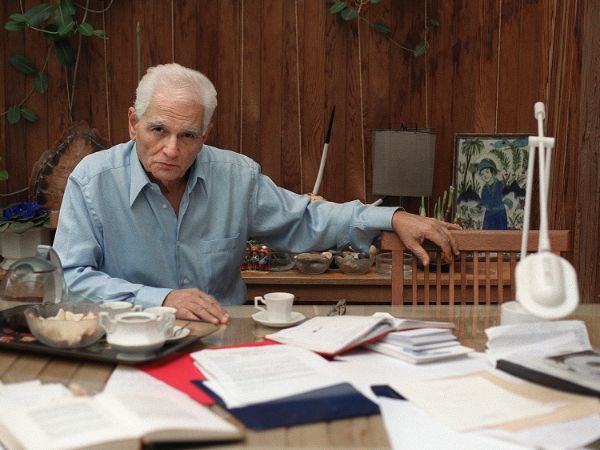
When we look at Derrida’s writings on religion, we see that he mainly deals with God, theology, especially negative theology, Judaism, Christianity, Islam and messianic belief. His belief in God has been wondered by many people, especially his mother. Moreover, Derrida is aware that his own understanding of God is a matter of curiosity. He says that even his mother could not ask him whether he believed in God or not and that he wanted to learn about his belief in God from others. Derrida states that there are no traditionally accepted views of God and therefore, according to accepted religions, he can be characterized as an atheist. When Derrida says according to accepted religions, he himself does not accept these religions.
Although he was born to a Jewish family, he states that he was not given Jewish religious education. However, when we look at his works, it is sometimes possible to see the influence of his Jewish religious belief. Starting from Of Grammatology and Writing and Difference, the author’s references to Jewish sources in his other books and his references to Jewish theologians and philosophers such as Gerchom Scholem, Walter Benjamin and Emmanuel Levinas show that he was influenced by the Jewish society he was part of. In a significant part of his writings on religion, traces of philosophers such as Kierkegaard, Hegel, Nietzsche and Heidegger, who deeply influenced postmodern thinkers, can be seen. Derrida has worked on many subjects. When we look at the works he has written, we see that he has created works not only in philosophy but also in sociology, anthropology, history, culture and religion and has influenced certain circles with these works.
His marriage to Marguerite Aucoutourier lasted 47 years until her death and produced two sons (Pierre and Jean). He mostly managed to hide his relationships with his many lovers. Nevertheless, for the one of these lovers who left the most trace, La carte postale: De Socrate à Freud et au-delà (The Postcard: From Socrates to Freud and beyond), which was published as lines addressed to an anonymous lover, so disturbed Pierre, who was seventeen at the time, that he stopped reading his father’s books, left home and changed his surname. This secret affair is revealed during the presidential candidacy of Socialist Prime Minister Lionel Jospin. Jospin’s wife, the philosopher Sylviane Agacinski, would reveal that the father of her son Daniel was Derrida, with whom she had been together from 1972 to 1984, and that they had separated because she had decided to keep the child.
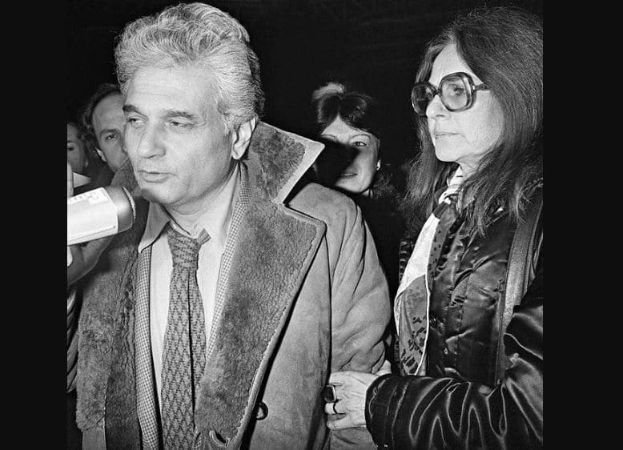
Simon Glendinning writes in his book that Derrida was a “Mediterranean macho” in his relationship with women, “as protective of his sons as a Jewish mother”, “always a little on the sidelines” in political disputes and “a notorious patricide” in philosophical matters.
Derrida was never held in high esteem in France, but gained enormous popularity when he became a lecturer at elite American universities such as Johns Hopkins and Yale. He became a “nihilist guru” in the eyes of students who only half understood his ideas, a “charlatan” in the analytic philosophical community, which vehemently rejected his method, and finally, with the help of the academic community, which began to adapt his new way of reading to all fields, a thinker who in time penetrated deeply into literature, ethics, theology and political science.
Until his death from pancreatic cancer on October 9, 2004, Derrida spent his life giving countless lectures, seminars, lectures, participating in symposiums, meetings and panel discussions in many countries.
who is the french philosopher jacques derrida, what is the philosophy of jacgues deridda, jacgues derrida, jacgues derrida and the concept of difference, jacgues derrida and edmund husserl, jacgues derrida and the French-Algerian war, the friendship between jacgues derrida and louis althusser, jacgues derrida and his lovers, jacgues derrida and his book What is poetry?, jacgues derrida and the concept of deconstruction, jacques derrida, what are the works of jacques derrida, his book sound and phenomenon, the concept of god and religion, writing and difference


